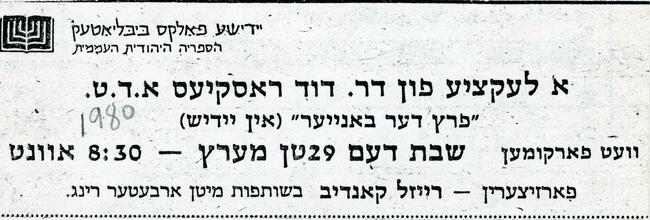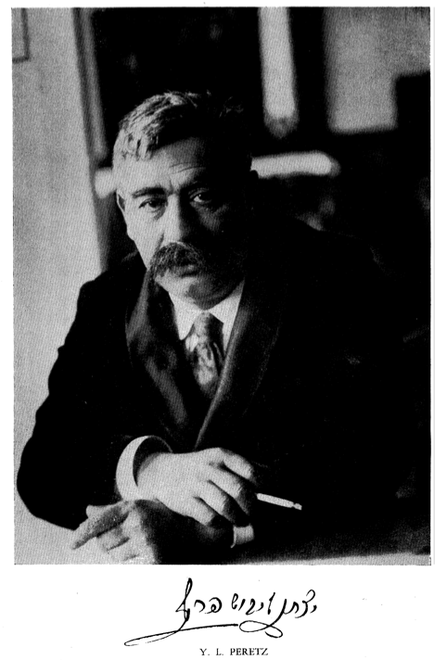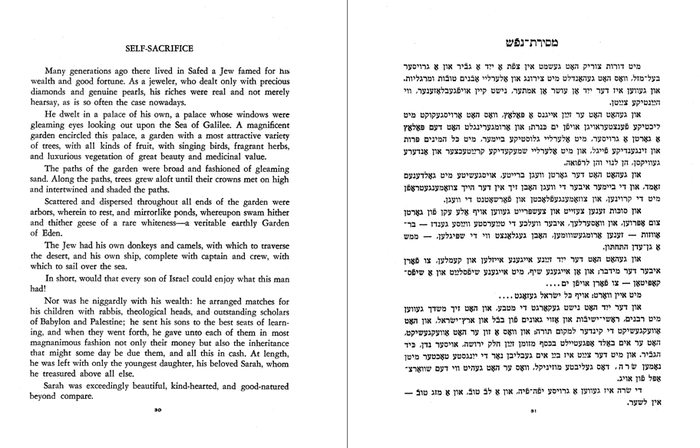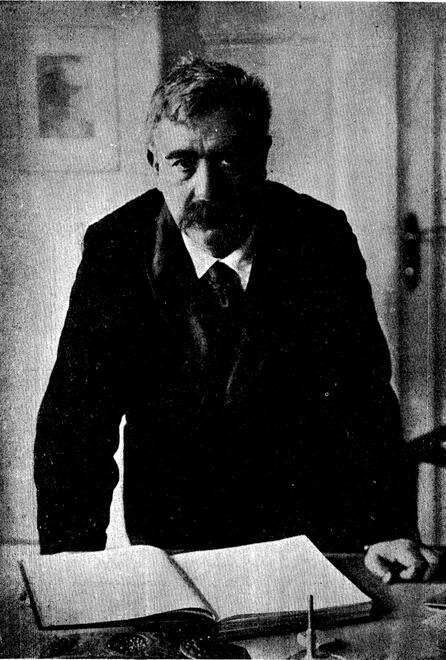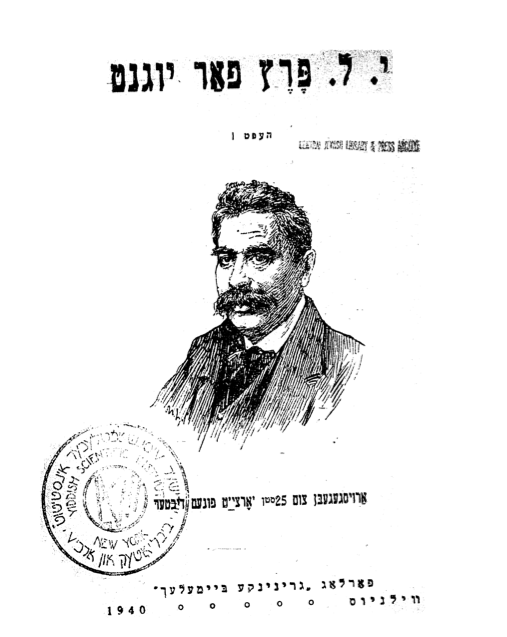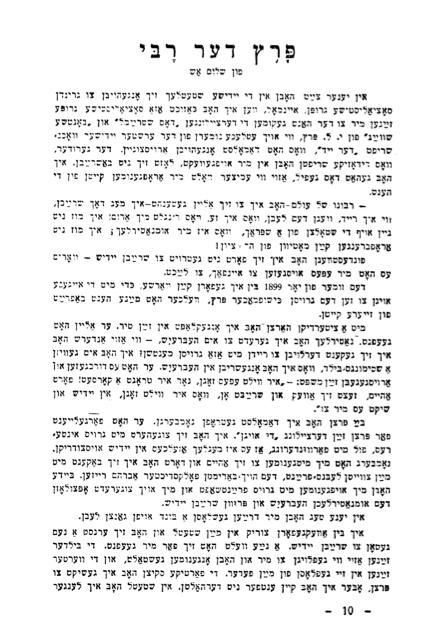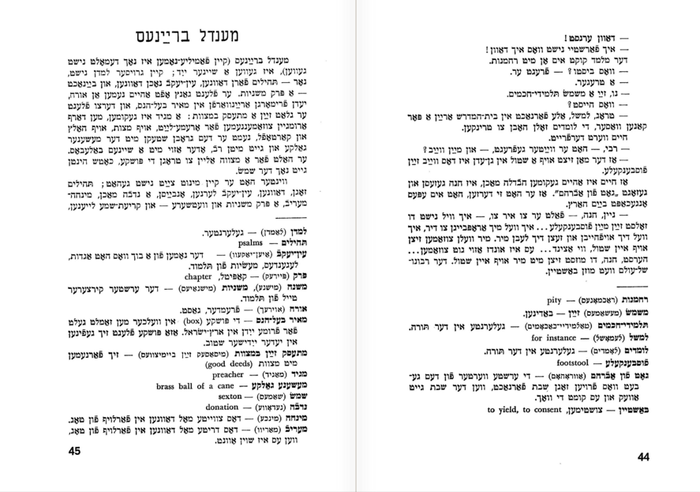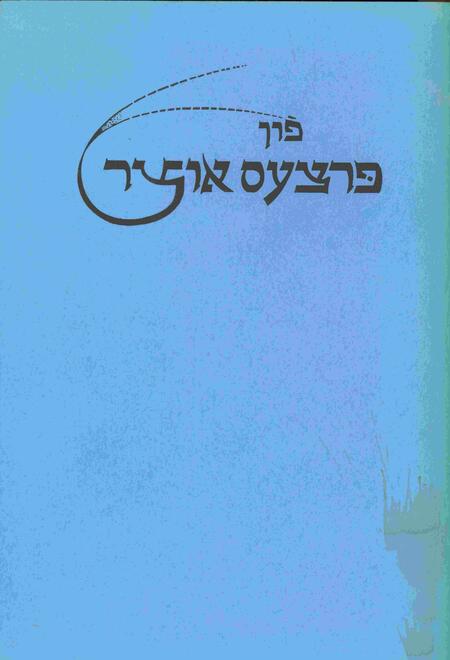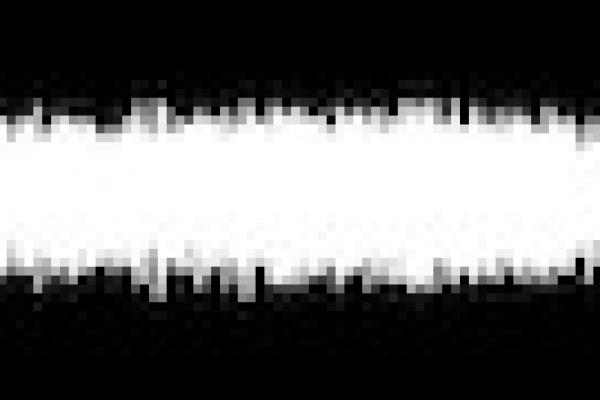Annotated Guide to I. L. Peretz
The latest Pakn Treger is a special issue devoted to I.L. Peretz, in honor of the hundreth anniversary of his passing (his yortsayt). Features describe all aspects of his career: David Mazower writes about Peretz’s many creative lives, and Debra Caplan offers a defense of Peretz’s play At Night in the Old Marketplace, a legendary, technically ambitious failure.
But this is hardly the first time we've featured stories about Peretz, nor does it represent the full richness of our archival holdings of material by and about Peretz. Multiple recordings of Peretz’s stories are available in our Sami Rohr Library of Recorded Yiddish Books, and many editions of Peretz’s works are available in our Steven Spielberg Digital Library. This bilingual edition of Peretz’s stories is a particularly good starting point, while this collection of Peretz’s letters and speeches is an excellent resource for scholars and those with a background in Yiddish who want to learn more.
For those studying Yiddish, we recommend the volume Fun peretses oytser, an anthology assembled by the education department of the Workmen's Circle. The book contains glosses and annotations of difficult words and concepts in both Yiddish and English. While the book is available in its entirety online, the physical book, with its understated blue cover, makes an excellent addition to the home library. Copies are available through the Yiddish Book Center. Those studying Yiddish might also enjoy the collections of Peretz's writings that were assembled for use in schools. This one was published in honor of the fifth anniversary of his passing; this one, in honor of his twenty-fifth yortsayt.
In Pakn Treger 62 (2010), Goldie Morgentaler shared some beautiful reflections on teaching Peretz in Lethbridge, Alberta. The Canadian Bible Belt may be an exotic setting, but the questions she finds herself grappling with represent some of the most critical issues for the study of Yiddish and Jewish culture:
“How does one teach Yiddish literature without teaching something about the history of the countries in which it was created—mainly Poland, Ukraine, Russia—and the history of the Jews in those countries? How does one teach Jewish literature of the nineteenth and twentieth centuries without teaching about anti-Semitism, which was pervasive throughout this region at this time and sanctioned by the government? How many references to the persecution of the Jews in Eastern Europe are too many references? There is no way to avoid the topic of suffering. But how much gloom is too much gloom? How many pogrom stories should one teach? How many novels about the Holocaust?”
The Summer 2008 Pakn Treger featured a bilingual version of Peretz’s speech at the Czernowitz language conference, with brilliant art by Ben Katchor.
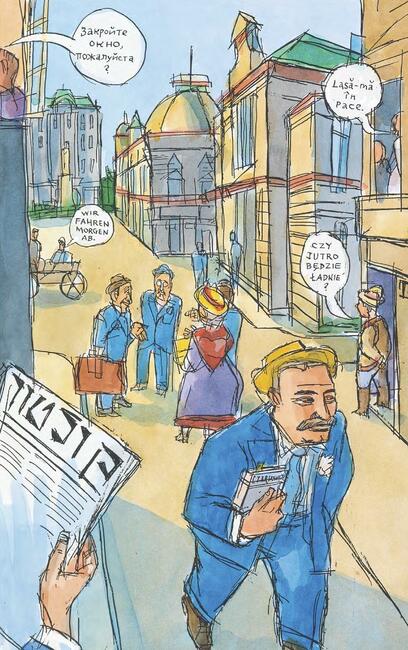
As Catherine Madsen explains in her introduction, the Czernowitz conference was conceived as an attempt “to elevate and standardize the language,” but the conference became a referendum on the status of Yiddish and Hebrew: “Was Yiddish a Jewish national language or the Jewish national language?” The conference was a watershed moment in Jewish nationalism. You can learn more about the Czernowitz conference in this video with Professor Sam Kassow:
As part of our New Yiddish Library series, the Center and Yale University Press published The I. L. Peretz Reader, an anthology of Peretz's writing edited by the preeminent Yiddish scholar Ruth Wisse. The I. L. Peretz Reader is the best English volume of Peretz’s work, with an erudite introduction by Wisse. While the introduction is not available online, Wisse features prominently in our archival collections of material about Peretz. In January 1971, she gave a lecture on “The Genius of I.L. Peretz” at the Men’s Association of Congregation Shaar Hashomayim breakfast forum, which is now available in our Frances Brandt Online Yiddish Audio Library, a collection of recordings from the Jewish Public Library in Montreal. Peretz also makes an appearance during Wisse’s lecture on the experience of editing The Penguin Book of Modern Yiddish Verse, which she delivered in Montreal in 1985. Below, you can find audio of Wisse on "Monish," Peretz's epic poem from the talk in Montreal (the full lecture is available here) and a short video of Wisse discussing "The Story of the Billy Goat," one of her favorite works by Peretz.
For those who understand Yiddish, our archival collections also feature a fantastic lecture by David Roskies, “Peretz the Renewer,” and the full programs of two evenings celebrating Peretz’s creativity: a lecture on the sixtieth anniversary of his death and another program on the seventieth anniversary.
